Better Sex
AARPs Guide to Sex After 50
Dr. Pepper Schwartz
Better Sex
AARPs Guide to Sex After 50
Copyright 2015 by AARP. All rights reserved. AARP is a registered trademark.
E-book produced by RosettaBooks.
Author: Pepper Schwartz
Editor: Allan Fallow
Director, AARP Book Division: Jodi Lipson
Cover design by Domini Dragoone
Creative Director: Scott A. Davis
Director of Photography: Michael Wichita
Published by AARP, Washington, D.C.
No part of this publication may be reproduced, stored in a retrieval system, or transmitted in any form or by any means, electronic, mechanical, photocopying, recording, scanning, or otherwise, except as permitted under Section 107 or 108 of the 1976 United States Copyright Act, without the prior written permission of the Publisher.
Limit of Liability/Disclaimer of Warranty: While AARP and the author have used their best efforts in preparing this book, they make no representations or warranties with respect to the accuracy or completeness of the contents of this book and specifically disclaim any implied warranties of merchantability or fitness for a particular purpose. No warranty may be created or extended by sales representatives or written sales materials. The advice and strategies contained herein may not be suitable for your situation. You should consult with a professional where appropriate. AARP and the author shall not be liable for any loss of profit or any other commercial damages, including but not limited to special, incidental, consequential or other damages. The fact that an organization or website is referred to in this work as a citation and/or a potential source of further information does not mean that AARP and the author endorse the information the organization or website may provide or recommendations it may make. Further, readers should be aware that Internet websites listed in this work may have changed or been removed between when this work was written and when it is read.
Other AARP print and e-books are available at AARPs online bookstore, aarp.org/bookstore, and through local and online bookstores.
ISBN e-Pub edition: 9780795345951
www.RosettaBooks.com
Contents
Foreword: Why I Write About Sex
Although my mother was a homemaker in a traditional marriagethe woman always dressed like a ladyshe gave me an unusual upbringing for a boomer kid. For starters, there was her unconventional take on sex. Homosexuality? Perfectly natural. (A marginal view at the time, Im obliged to remind younger readers.) Planned Parenthood? She was an admirer of that organizations radical founder, Margaret Sanger.
As for sex education, my mother thought children should have free access to it, beginning with her only daughter, me. After taking books by Havelock Ellis and Alfred Kinsey down from her shelves, I had way more sexual knowledge than any of my classmates. (Psychiatrist Ellis, a contemporary of Sigmund Freuds, pioneered the objective study of homosexuality; Kinsey was the first to systematically gather national statistics on male and female sexuality.)
One day a friend of mine showed up on our doorstep, sobbing hysterically because her mother had told her she was going to hell. Apparently my 11-year-old friends mom had caught her masturbating and informed her she was evil. By then my mothers lending libraryespecially a sex-education pamphlet she had given mehad clued me in that masturbation is common and normal, so I was able to comfort my friend: I showed her the page that treated masturbation as an ordinary and healthy practice, reassuring her she was neither evil nor hell-bound.
Still, the episode shook me. I didnt want my friends to have to endure the sort of ignorant invective my friends mother had hurled at her daughter, so I asked my mother if we could have a sex-education group in our knotty pine-paneled basement. My mother, bless her forward-thinking heart, agreed. And so, for the next year, seven friends and Iall on the verge of adolescencetalked freely about sex, dispelling a mountain of myths on the subject.
Sharing what I know with my peers about sex would become a life theme. Today Im a college professor, teaching courses on the sociology of human sexuality and intimate relationships at the University of Washington. And though my typical workday is taken up by age-appropriate discussions of sex and lovewhat, for example, are the consequences of the campus hook-up scene?my true peers are people in their 50s, 60s and beyond. My experience with this latter group has convinced me theyre more in need of sex-related advice than their presumably less-informed younger counterparts.
Society isnt helping. In perhaps the ultimate stroke of ageism, my contemporaries have been unfairly stigmatized and ridiculed for their continuing interest in sex. And now that they no longer look quite the same as they did when jumping into a hot tub 40 years ago, many of them have even grown inhibited about sex. What ever happened to the free love generation?
Compounding this dynamic is the fact that age brings new challenges, both psychic and mechanical: We may need to take more time for foreplayor even a few medicationsto intensify our sexual interest or ability. Our hips or knees may have been replaced. Our erections and orgasms dont behave as predictably as they once did.
Does that mean we cease to exist as sexual beings? Absolutely, positively not! Sex of all stripes still has the capacity to bring us bliss and bonding. Why shouldnt we get the information and medical help we need, and feel good about our enduring sexual vitality, rather than succumb to unflattering stereotypes? Just because were part of a culture that tries to strip older people of their right to be romantic and sexy doesnt mean we should dial back our search for passion!
Partly, I think, were getting in our own way: Why do we feel so uncomfortable when it comes to talking about what we want and need from our partner? After all, as the leading edge of the baby boom came of age in the 1960s and 70s, pioneering sex researchers William H. Masters and Virginia E. Johnson were shedding light on all we might be missingand how to fix problems we never knew we had. Older boomers were likewise among the first to benefit from the newly developed specialties of sexual medicine and sexual therapy. The womens movement, the gay movement, the sexual-liberation movementall of these emerged in roughly the same time period, precipitating once-unimaginable public conversations about sexual functioning, sexual identity and sexual technique.
I wish those dialogues could mature alongside us, for we still dont talk freely enough about sexual concerns. We know, for example, that erectile dysfunction (ED) becomes more common among men in their 50s and 60s, and quite common in their 70s and 80s. Yet in a 2010 study about sexual attitudes and behavior, fewer than 20 percent of respondents felt empowered to talk to a professional about getting an ED prescription. Similarly, many older women who experience vaginal atrophy resist using artificial lubrication, even though everyday lubricants (otherwise known as vaginal plumpers, such as topical estrogen or Replens) could solve their problems of abrasion or even pain.
This reluctance can lead to an even bigger problem: simply giving up on sex altogether. A large minority of people stop caring about sex because their health conditions or medications have whittled their sex drive down to a nub. And while a flickering libido can often be traced to just such a physical cause, many older people consent to have so little sex that it becomes a vestigial pleasure.
But unless we chase it off, I firmly believe that sex need never go away. We shouldnt convince ourselves that any particular sexual problem has become intractable, nor should we tolerate a partners refusal to discuss it or seek a solution.
Next page

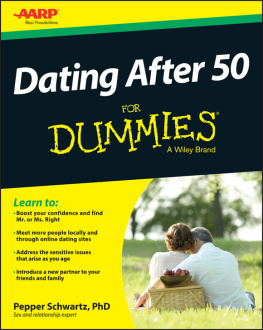

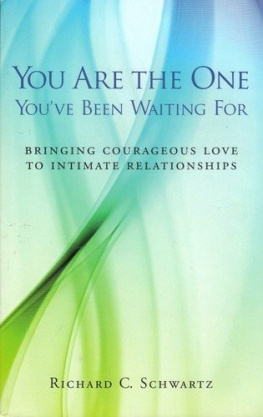

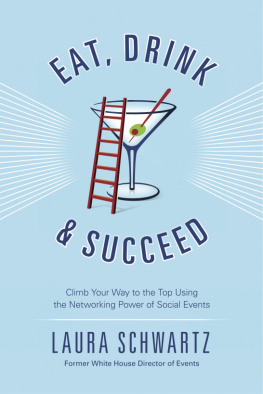


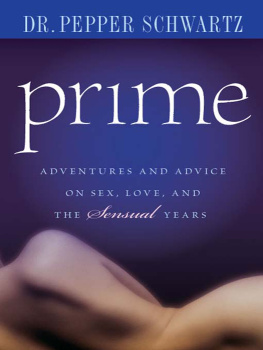
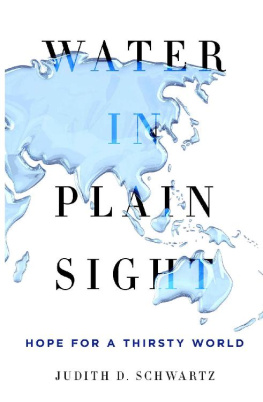
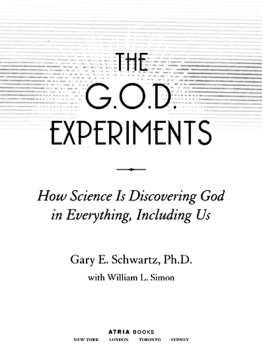
![Charles Schwartz [Charles Schwartz] - Who Changes Everything : Unlock The Secret That Will Transform Your Life](/uploads/posts/book/129962/thumbs/charles-schwartz-charles-schwartz-who-changes.jpg)